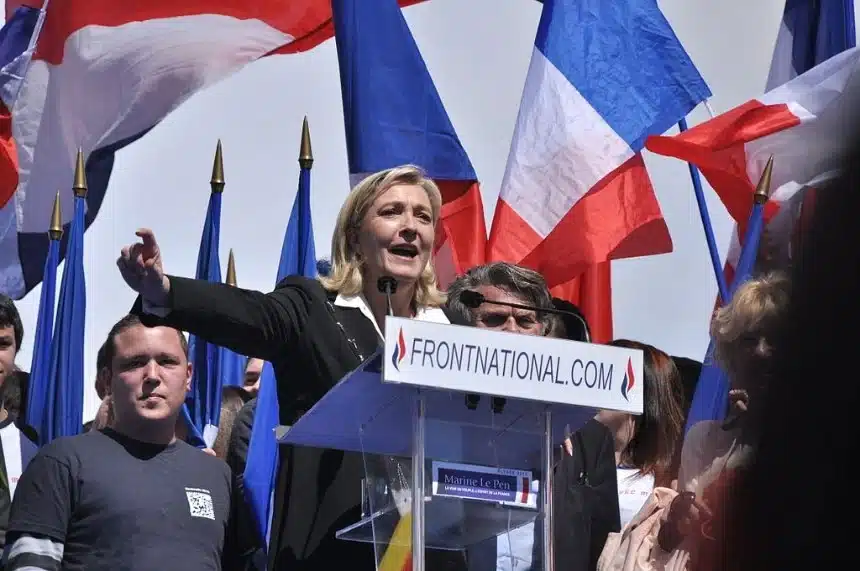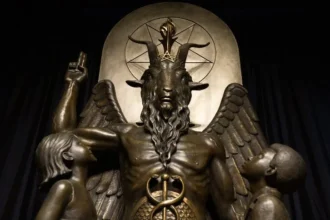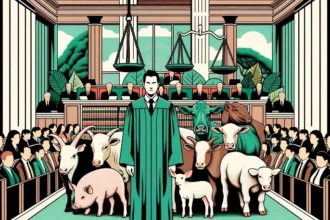Discovering Christian Heritage
In Europe’s contemporary political landscape, the resurgence of right-wing populism has sparked a nuanced debate around national identity, immigration, and the role of religion in public life. Central to this discourse is the “Christian Heritage,” a concept increasingly invoked not as a testament to faith but as a cornerstone of European identity and civilization.
This article delves into how populist parties across Western and Northern Europe are harnessing Christian heritage as a bulwark against immigration, casting it as a secular and progressive legacy starkly opposed to Islam.
This strategic framing seeks to redefine national boundaries and values, arguing for a cultural and civilizational clash that places Christianity at the heart of European identity. This exploration aims to understand the implications of this rhetorical pivot for Europe’s social cohesion and its future political trajectory.
Christian Heritage and Populism in Europe
Europe’s political scene is witnessing a significant transformation with the rise of right-wing populism, marking a shift in the discourse around national identity, immigration, and cultural values. This phenomenon is not isolated but widespread across Western and Northern Europe, where populist parties have gained traction by appealing to a sense of besieged cultural heritage. Central to their narrative is the utilization of Christian heritage as a cultural and political tool.
These parties, operating within societies that are among the most secularized in the world, have adeptly rebranded Christianity from a religious faith to a marker of civilizational identity. This strategic framing serves a dual purpose: it highlights a cultural and moral boundary against perceived ‘outsiders,’ primarily Muslim immigrants, and it positions these parties as defenders of Europe’s secular values against the backdrop of religious conservatism.
By invoking Christian heritage, right-wing populists aim to delineate a clear ‘us vs. them’ dichotomy, suggesting that European identity and its Christian legacy are inherently incompatible with Islamic culture. This appropriation of religious heritage underscores a complex interplay between identity, politics, and religion, reshaping the political landscape in a way that challenges traditional notions of multiculturalism and integration.
Christianity: Identity vs. Faith
Within the evolving narrative of right-wing populism across Europe, the role of Christianity has transformed significantly. No longer just a matter of personal faith, it now serves as a seminal emblem of cultural and national identity, signaling a profound reinterpretation of religious heritage to address modern sociopolitical concerns.
This strategic shift underscores a nuanced distinction between Christianity as practiced spirituality and as a foundational pillar of European cultural heritage. Populist parties, often in highly secular contexts, portray Christianity not primarily for its theological doctrines but as emblematic of European values—liberty, democracy, and human rights—positioning these as inherently secular and progressive in contrast to Islamic culture, which they depict as fundamentally at odds with these values. This rhetoric suggests that the Christian heritage of Europe is less about religious observance and more about a cultural legacy that underpins the continent’s enlightened principles.
Through this lens, Christianity is invoked not in the service of promoting religious faith but as a means of delineating a clear boundary of belonging, where the ‘Christian’ identity of Europe serves as a bulwark against the perceived threats posed by immigration and the cultural changes it brings.
This complex interplay between identity and faith reflects a broader strategy to appeal to a sense of historical continuity and moral superiority, effectively using Christianity as a symbol to galvanize support for policies aimed at preserving a particular vision of European identity.
Islam Through the Populist Lens
Right-wing populist movements across Europe have positioned Islam not merely as a different religion but as a symbol of cultural and ideological antithesis to European values. This perspective relies on a stark binary, framing European culture as rooted in Judeo-Christian values that emphasize freedom, equality, and secular governance, in contrast to a portrayal of Islam as inherently opposed to these principles.
These parties exploit historical narratives and contemporary anxieties, suggesting that the presence of Islamic communities represents a fundamental threat to European way of life. This construction of a “clash of civilizations” narrative serves multiple purposes: it legitimizes stringent immigration policies, reinforces group solidarity among native populations, and shifts the discourse from socio-economic issues to cultural and religious identity conflicts.
By articulating this divide, right-wing populists aim to crystallize a sense of urgency and existential threat, thereby galvanizing support for their political agendas. Such framing not only distorts the complexity of Islamic faith and practice but also overlooks the diversity within European Muslim communities, contributing to a polarized public discourse that hinders multicultural understanding and coexistence.
Framing Strategies and Nativism
Right-wing populist parties have masterfully refined their framing strategies to navigate the social landscape, ensuring their narratives resonate broadly while sidestepping direct accusations of racism or xenophobia.
They’ve adeptly repackaged nativist sentiments as concerns for cultural preservation, security, and the maintenance of socio-economic stability, casting their stance as a defense of national identity rather than an outright rejection of the ‘other.’ This nuanced approach allows them to appeal to a wider audience, incorporating moderate voices who may share concerns about rapid societal changes without endorsing overtly xenophobic ideologies.
By emphasizing the protection of traditional values and the rule of law, these parties position themselves as guardians of societal cohesion, skillfully avoiding the stigma associated with more extreme forms of nationalism. This strategic positioning not only broadens their appeal but also complicates efforts to counter their narratives, as they operate within the bounds of acceptable public discourse, making their ideology more palatable to the general populace.
Christian Heritage and the Future of Europe
The strategic discourse around Christian heritage and its implications for Europe’s future suggests a complex intersection of identity, politics, and societal cohesion. This rhetoric, employed by right-wing populists, not only redefines European identity in exclusionary terms but also challenges the pluralistic fabric of contemporary European societies.
By framing Christian heritage as a foundational pillar opposed to Islamic culture, these parties provoke divisions that could undermine social harmony and exacerbate cultural tensions. The future of Europe, therefore, hinges on navigating these identity politics in a manner that promotes inclusivity, respects diversity, and fosters a shared sense of belonging.
This approach is critical for maintaining the continent’s political stability and ensuring that its rich cultural mosaic remains a source of strength rather than a wedge driving its people apart.
Adapted from an academic article for a wider audience, under license CC BY 4.0









